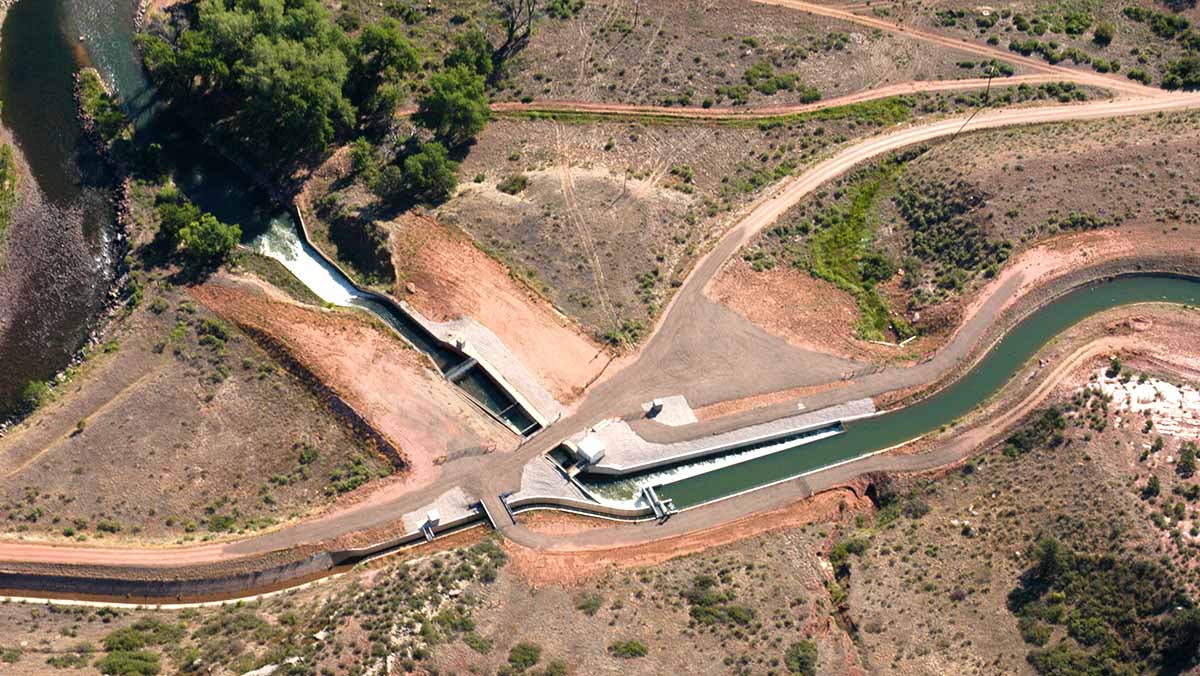


Select one of the options below:

Advance your career in water resources planning, management, and policy with this graduate certificate addressing an array of water issues in the western United States and around the world. Expand your knowledge with case studies, geospatial applications, and exercises. The program of study emphasizes an understanding of the hydrologic cycle and the physical processes that drive it, how humans adapt water resources to their needs, techniques for sustainable management, the evolution of laws and policies governing water use, and basic spatial and temporal analysis of water data.
After completion of this water resources graduate certificate, apply your knowledge to a career in the public or private sector. Career opportunities may be found in forests, parks, wildlife refuges, public lands, special-purpose water districts, academia, water resources engineering and consulting firms, nonprofit organizations, and municipal, tribal, county, state, or federal agencies.
Learn more about courses in this program on the curriculum page.
Dr. Steven Fassnacht’s research focuses on snow hydrology and how a changing climate affects water resources in cold land regions. His projects examine the spatial and temporal variability of snowpack (and other earth system) properties using a variety of field measurements, station data and remotely sensed data. Past projects have used hydrological and snowpack models to evaluate datasets and model performance, while others have integrated social, ecological and/or hydro-climatological datasets to assess uncertainty, especially in regions with limited on-the-ground measurements.
Dr. Matt Ross is an ecosystem scientist interested in how people control and change the environment and how altered landscapes impact the streams and rivers that drain them. To explore how people reshape landscapes and create novel dominant controls of ecosystem processes, Matt uses a range of approaches including: remote sensing, in situ sensors, field data collection, and use of public datasets with data science techniques. All of this work aims to enhance our understanding of ecosystem change for scientists and society alike.
This graduate certificate requires three courses total and they may be taken in any order. Students coming into this program must have an undergraduate degree in a related field (i.e., hydrology, geography, geology, ecology, biology, etc.). Additional coursework may be required due to prerequisites.
| Fall semester | July 1 |
| Spring semester | December 1 |
Start your application online and upload materials directly into the online system. You can save your progress and return any time.
Apply NowThis online graduate certificate requires that students have an undergraduate degree from an accredited four-year institution. No specific prior coursework is required. Coursework in ecology and statistics is recommended.
International Students: A minimum Internet-based TOEFL score of 86 or a minimum IELTS score of 6.5 or a minimum of PTE score of 58 is required.
While it is not required, it is recommended that you contact us in advance of submitting application materials.
Complete the online graduate application and pay the nonrefundable application processing fee (payable online). As soon as you have completed the required information, please submit your application. Your application will not be reviewed until it is complete and all required materials have been received.
Request one official transcript from the institution where you earned your bachelor’s degree. Transcripts must be received directly from the originating institution to be considered official. Transcripts from Colorado State University are not required.
Electronic (preferred): Digital Transcripts must be submitted by the originating institution using a secure service such as parchment, eScrip-Safe, the National Student Clearinghouse, or e-Quals. Transcripts received via emails are considered unofficial. Use institution code 4075 for Colorado State University or gradadmissions@colostate.edu if the secure service requires an email address.
Mail (if necessary): Graduate Admissions Colorado State University – Office of Admissions 1062 Campus Delivery Fort Collins, CO 80523-1062
View your application status at any time to ensure your application checklist is complete or to check on updates.
Once your complete application, including supporting materials, is received, the department admission committee will review your application and notify you of their decision.
Proof of English language proficiency is required for applicants from countries or United States territories where there are official languages other than (or in addition to) English. This includes the U.S. territories of American Samoa, Guam, the Northern Mariana Islands, and Puerto Rico.